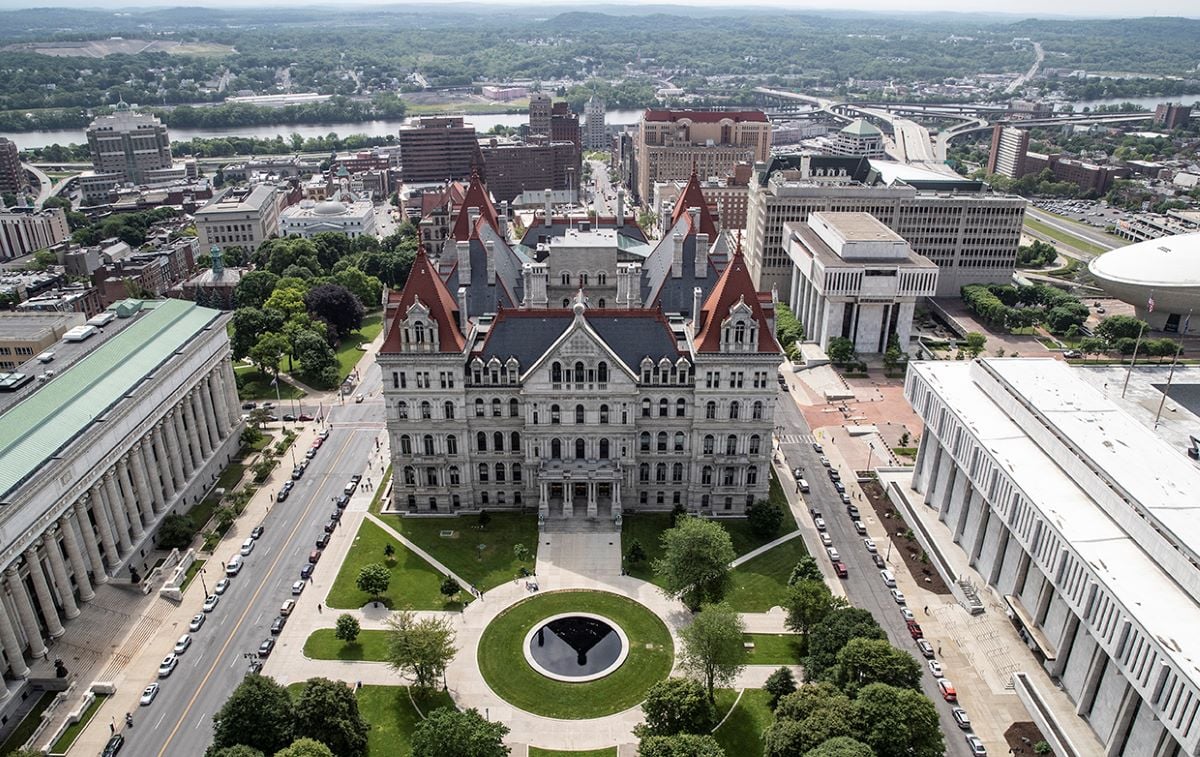[ad_1]
Posted on: March 15, 2023, 06:01h.
Last updated on: March 15, 2023, 12:40h.
The push to legalize iGaming in New York this year appears to have come up snake eyes.

Neither the New York Assembly nor the Senate included language to include online casinos in their versions of the state budget. Those proposals, called “one house budgets,” were released Tuesday and serve as the chambers’ responses to Gov. Kathy Hochul’s $227 billion spending proposal last month.
Hochul did not include iGaming in her budget draft, either.
Last week, state Sen. Joe Addabbo, D-Queens, told Casino.org that discussions to legalize it would stop for the year if iGaming did not make the cut in either budget proposal.
The issue seemed to frustrate Addabbo, who chairs the Senate’s Racing, Gaming, and Wagering Committee. He said that he addressed concerns that allowing state-licensed casinos, racetracks with video lottery terminals, tribal casino operators, and mobile sports betting operators to offer online casino games statewide would take away from brick-and-mortar revenues or slow down the development of the three downstate casinos, for which the state is currently seeking applicants.
Addabbo had hoped to parlay the – what he called – momentum that had been built in the last two legislative sessions to allow online sports betting and expedite the process to award the state’s last three commercial casino licenses into a push for iGaming.
If you want to give up a billion dollars a year in lost revenue to other states and the illegal market – if you want to do that – go ahead,” Addabbo said.
The senator also said that legalized iGaming would be a better way to secure money for the state’s Metropolitan Transportation Authority (MTA) than Hochul’s proposal to use revenue from the downstate casinos, especially since those tax dollars may not come to fruition for several years.
Lawmakers Disagree on Downstate Casino Taxes, Belmont Plans
While there was no talk of iGaming, the Assembly and Senate budget plans did include other gaming issues. However, the two bodies do not see eye-to-eye on all those matters.
For example, the Assembly said it backs the governor’s plan to use downstate casino tax money to shore up the MTA’s budget, which faces potential billion-dollar shortfalls in upcoming years.
That, though, is not a unanimous position.
“The Senate modifies the Executive proposal to direct funding from downstate casino licenses to the Metropolitan Transportation Authority (MTA) by ensuring that recurring casino tax revenues will be dedicated to education,” the Senate’s budget summary states.
The Assembly and Senate also want to make changes to Hochul’s plan to loan NYRA $455 million to overhaul Belmont Park.
The Senate wants to include additional conditions on the loan to ensure the renovations are completed as proposed. In addition, they want the state to include affordable housing on the Aqueduct Racetrack land, which the state would receive back once the Long Island track’s upgrades are completed.
Assembly leaders, though, want to eliminate the requirement that the Queens track closes once the Belmont work is finished.
Under the governor’s proposal, Belmont would close during the renovations, expected to take three years to complete, with that track’s meets being run at Aqueduct. The new Belmont would resume its traditional spring and fall meets while adding Aqueduct’s winter and early spring schedules after the state retakes the more than 100 acres near JFK.
New York Budget Deadline Looming
The unveiling of the one-house budgets traditionally serves as the formal beginning of budget negotiations between lawmakers and the governor’s office.
New York’s fiscal year runs from April to March, and the state’s constitution requires the legislature to pass and the governor to sign the budget into law by April 1. However, in recent years, April 1 has seemed more like an aspirational target than a hard deadline as negotiations have spilled into the beginning of the fiscal year.
The legislature did not approve last year’s budget until April 9, and the 2021-22 plan didn’t get approved until April 6, 2021.
[ad_2]
Source link

